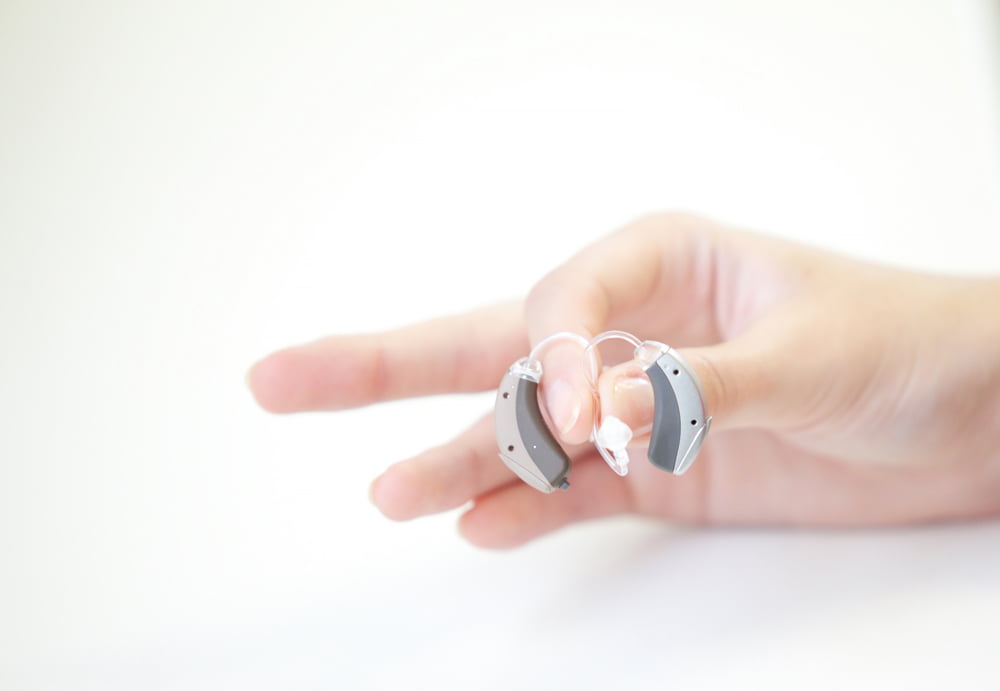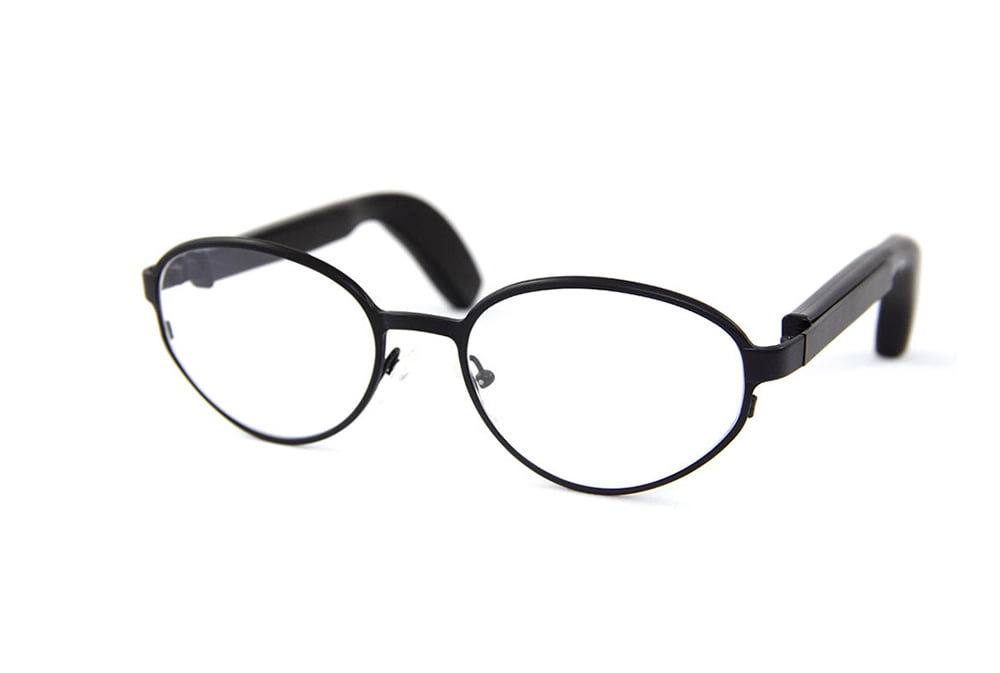So, you have made the important decision of addressing your hearing loss. You are ready to seek medical help, and find the right treatment to improve your quality of life. But which type of treatment is most suitable for you?
It is of great importance to note that only a hearing care professional can provide you with a diagnosis and recommend the correct treatment. It can, however, be helpful to know about the different options that are out there so that you feel prepared to discuss them when the time for your appointment comes.

Air Conduction Hearing Aids
Air conduction (or traditional) hearing aids deliver sound directly into the ear canal, and come in several styles: behind-the-ear (BTE), in-the-ear (ITE), in-the-canal (ITC), and completely-in-the-canal (CIC) aid. They come in various shapes and sizes: some are very small, almost invisible (great for individuals looking for a discreet option), and others are larger (suitable for people who prefer a device which is easier to handle).

These hearing aids are most commonly available at audiology clinics or through the NHS. Audiologists or hearing instrument specialists fit them based on your hearing needs, allowing you to start using them immediately. Once set up in accordance with your hearing needs, they can be worn straight away.
These hearing aids are most commonly available at audiology clinics or through the NHS. Audiologists or hearing specialists fit them based on your hearing needs, allowing you to start using them immediately.
A follow-up appointment is typically scheduled 6-12 weeks after the fitting. This allows you to share your experience with the audiologist and request adjustments if needed. It also enables the audiologist to observe the correct fitting and handling of the device.
Air conduction hearing aids (especially newer models) offer various features and benefits to choose from depending on your lifestyle, including ultimate Bluetooth connectivity, waterproof properties, telecoil technology, health data tracking, and many more.
This type of hearing aid is most suitable for individuals suffering from sensorineural hearing loss (SNHL), which involves damage to the hair cells inside the inner ear, or to the nerve pathways which lead from the inner ear to the brain.
Bone Conduction Hearing Aids
Bone conduction hearing devices (also known as osseointegrated or bone-anchored devices) use vibrations to transmit sound through the skull bones. They come in both surgical and non-surgical options. Surgical models include an implant placed behind the ear and a programmable external processor. Non-surgical options attach to the skin with adhesive, a headband, or specialized spectacles.

They can be purchased from an otolaryngologist, at a hospital, or at a private clinic. Surgical types usually feature a discreet design, but the wearer can choose to add various colourful skins and stickers to them. Occasional follow-up appointments might be needed, but those are usually rare and may not even require the wearer’s physical presence as the processor can be mailed in for re-programming or repair.
There has been continuous technological development in the field of bone-anchored devices and bone hearing aids, allowing them to offer various extra features such as a 360° soundscape, Bluetooth streaming from various devices, and a stable, consistent sound, even in environments with background noise.
These devices are most suitable for individuals suffering from conductive hearing loss which occurs when there is a blockage in the outer or middle ear, preventing transmission of sound waves to the inner ear. This type of hearing loss can be caused by various conditions such as ear infections, fluid buildup, punctuation in the eardrum, tumours, or structural defects.
Which Treatment Is Most Suitable for You?

To determine the best hearing aid for you, schedule an appointment with an audiologist. They will conduct a hearing test and recommend the most appropriate treatment.
There are some other points that might be worth considering before making a final decision as to which hearing device to purchase. For example, it can be a good idea to ask whether the hearing aid you have chosen can support a more severe case of hearing loss in case your condition worsens during the device’s lifespan. Since purchasing a hearing aid is a rather big commitment, planning for the expense can also be beneficial- make sure to look into any payment plan options that might be available and communicate your expectations to your hearing care professional.
Why Not Book a Hearing Test at Hear4U?
Are you currently in need of high-quality hearing care? Why not book a free hearing test at Hear4U? We offer a comprehensive hearing evaluation allowing us to provide you with a full, clear diagnosis, and to assess whether your condition is suitable for hearing aids or another form of treatment.

The hearing solutions that we provide include affordable air conduction devices of top-range quality, as well as cutting-edge bone conduction hearing aids that require no surgery and come in the form of attractive spectacle frames!
What is more, we offer interest-free payment plans to allow you to access the hearing care you need and deserve without placing yourself in an unfavourable financial situation.
Click here to book your free hearing test with us today!
